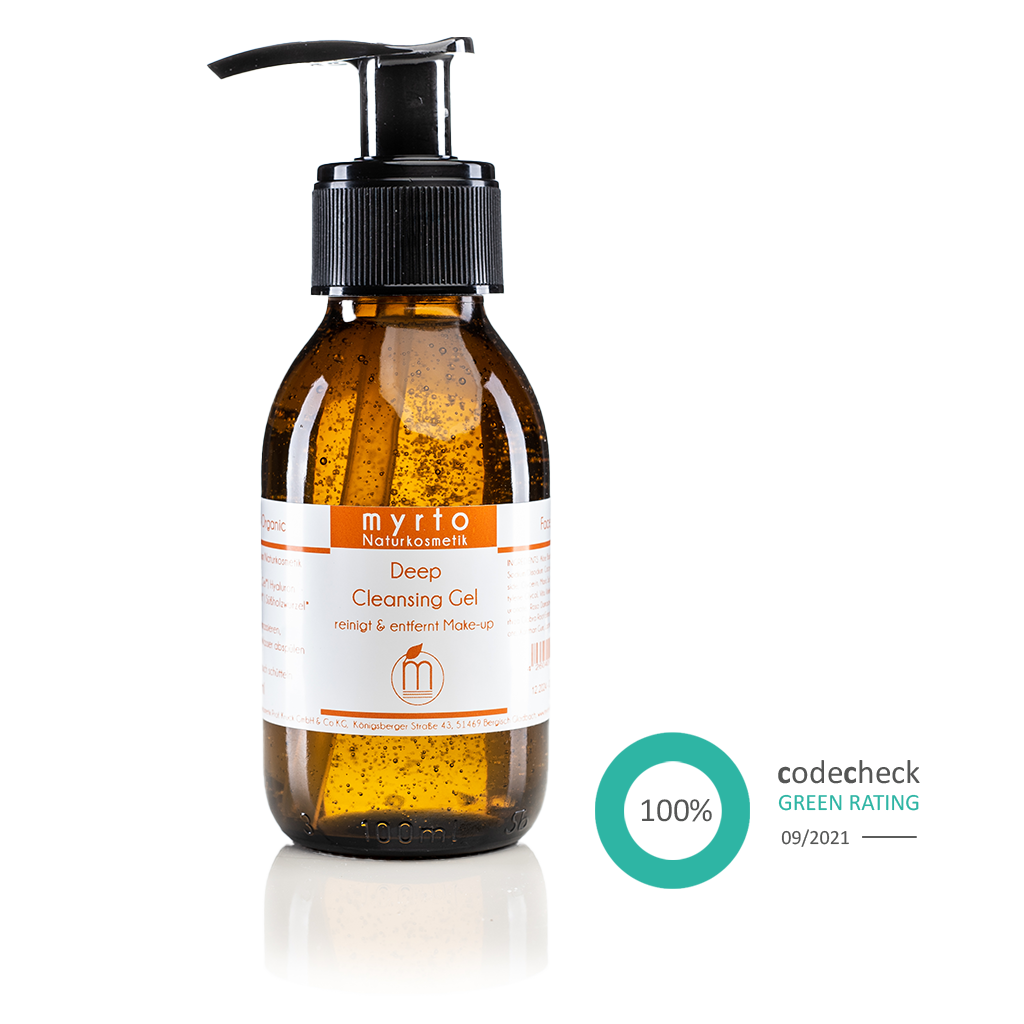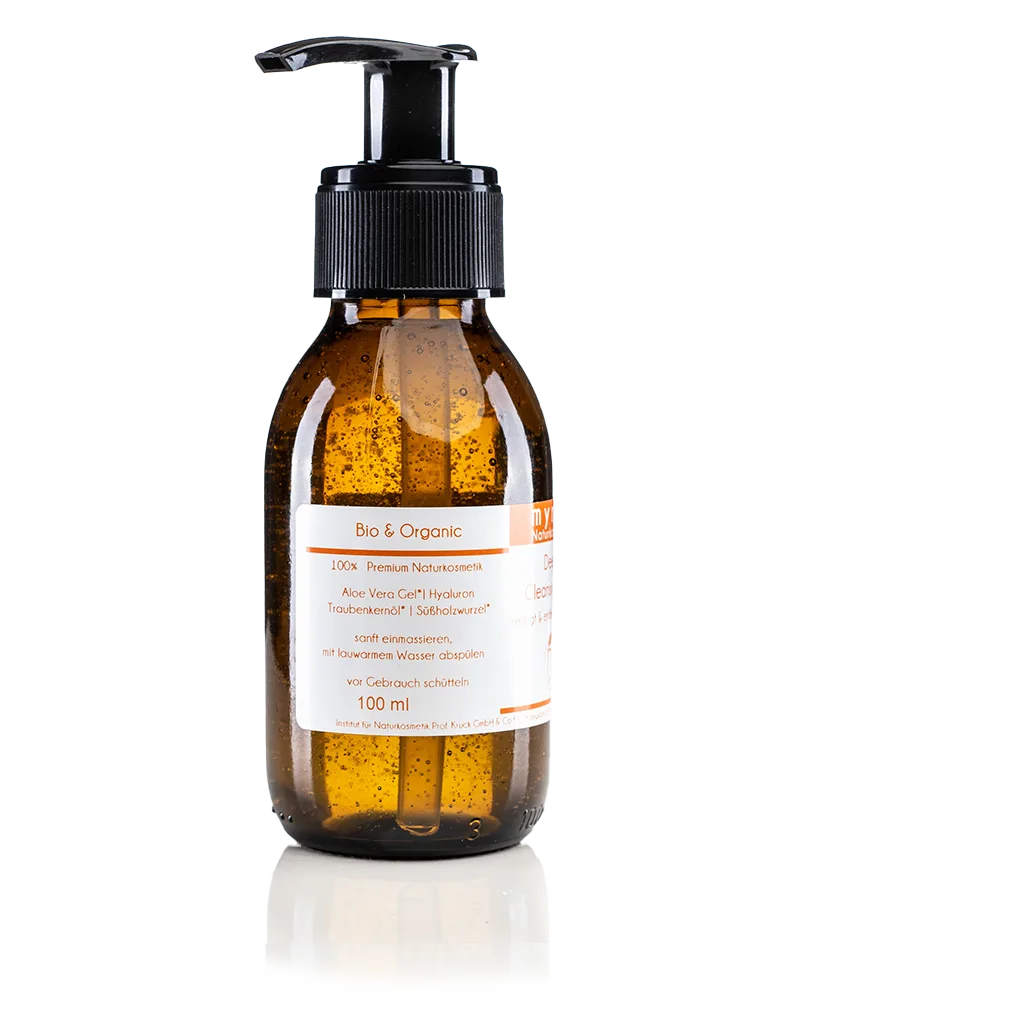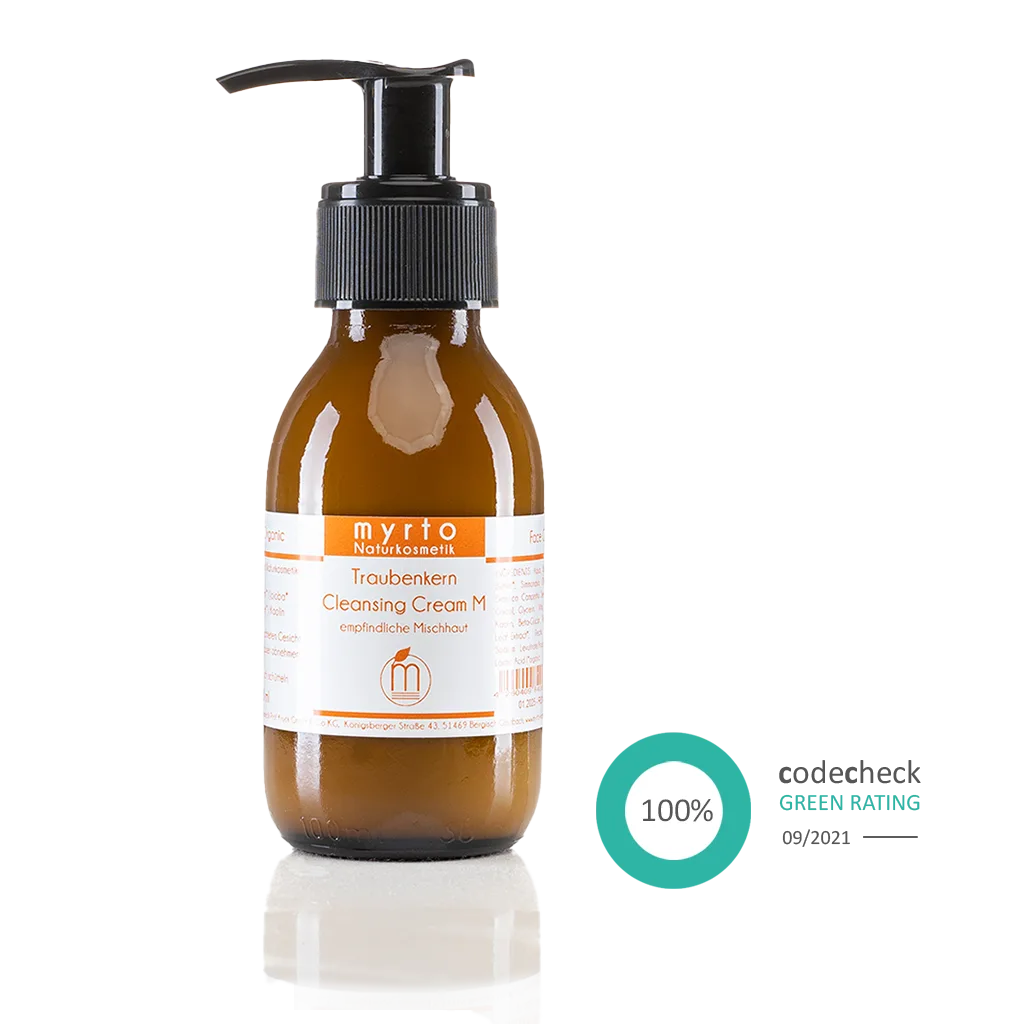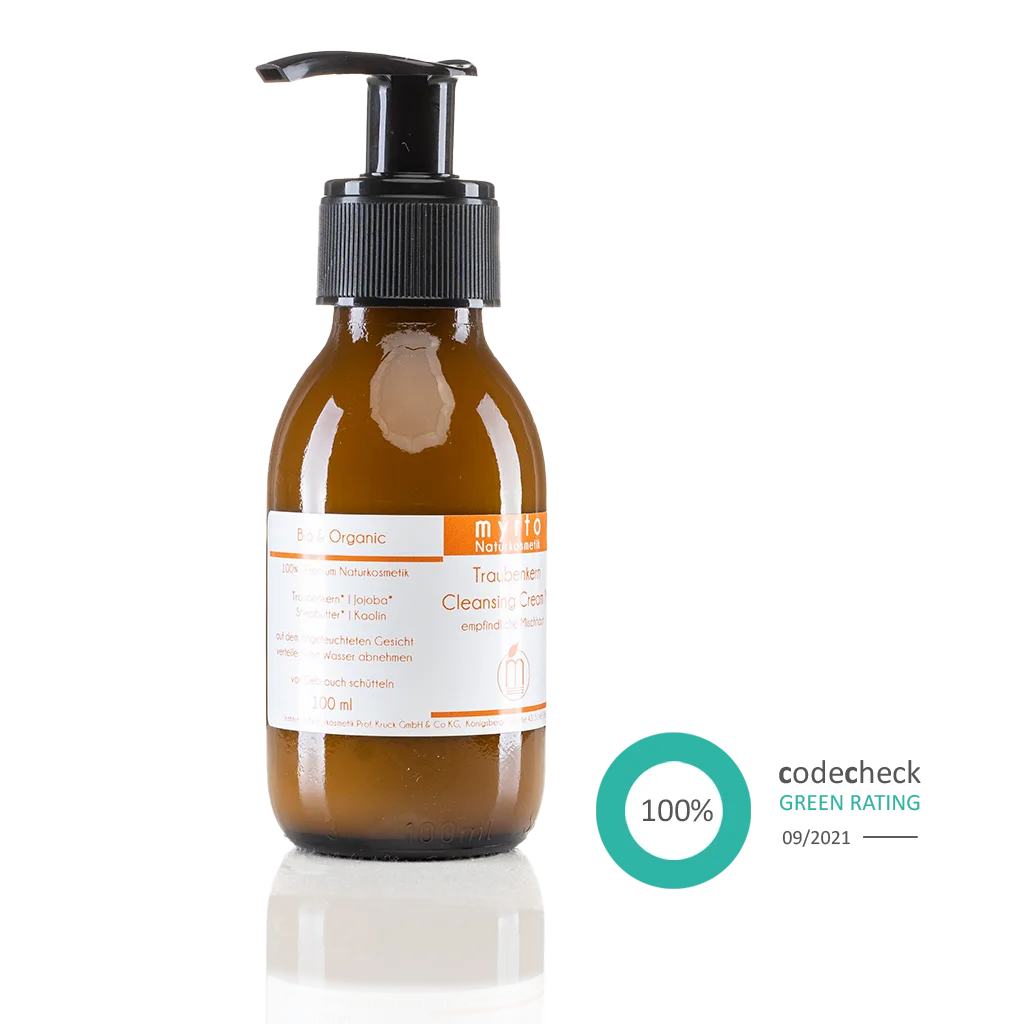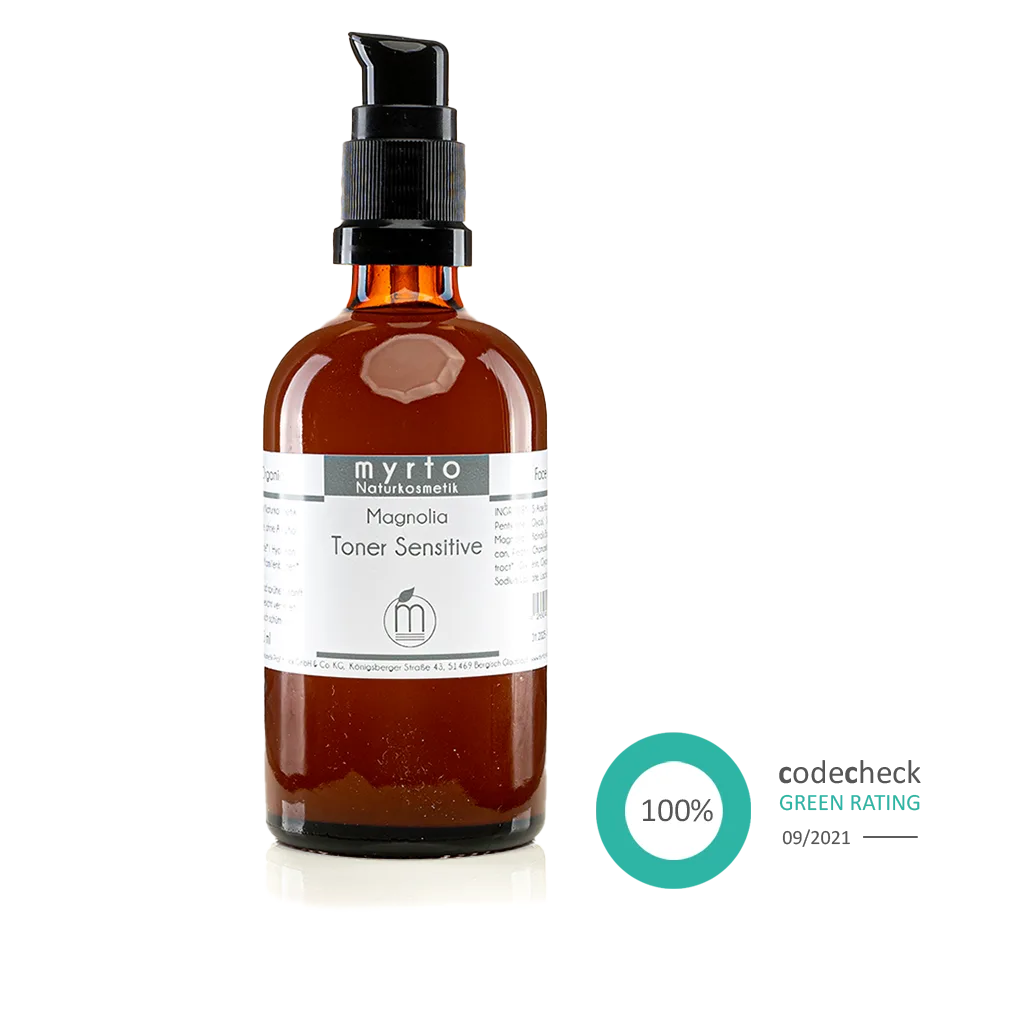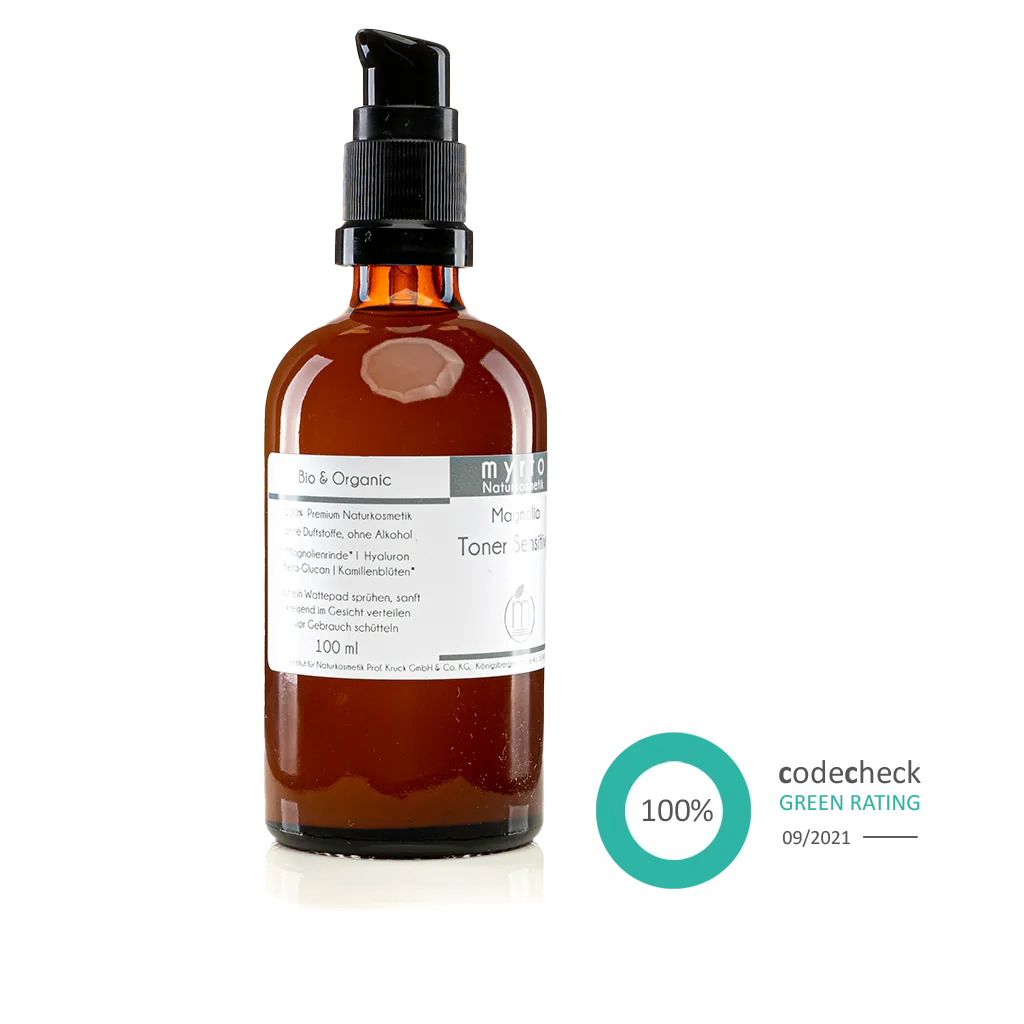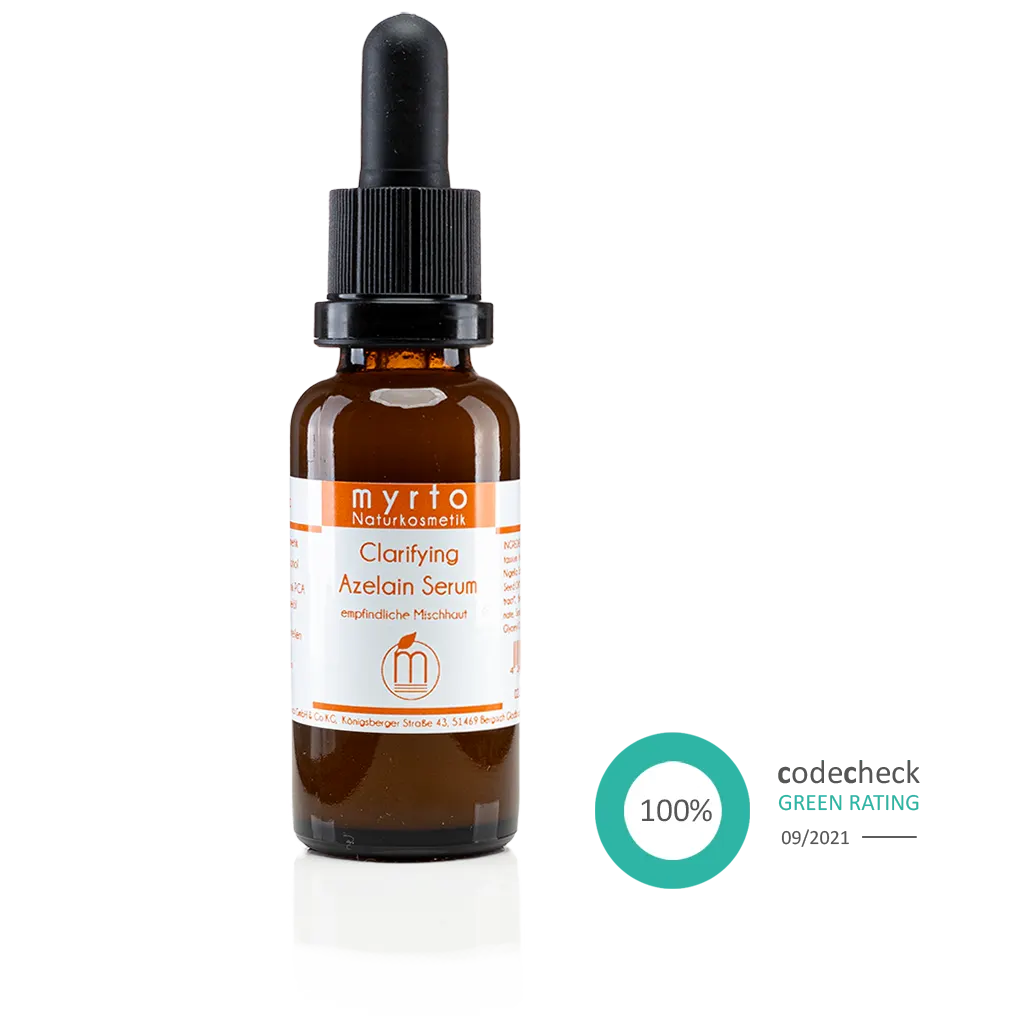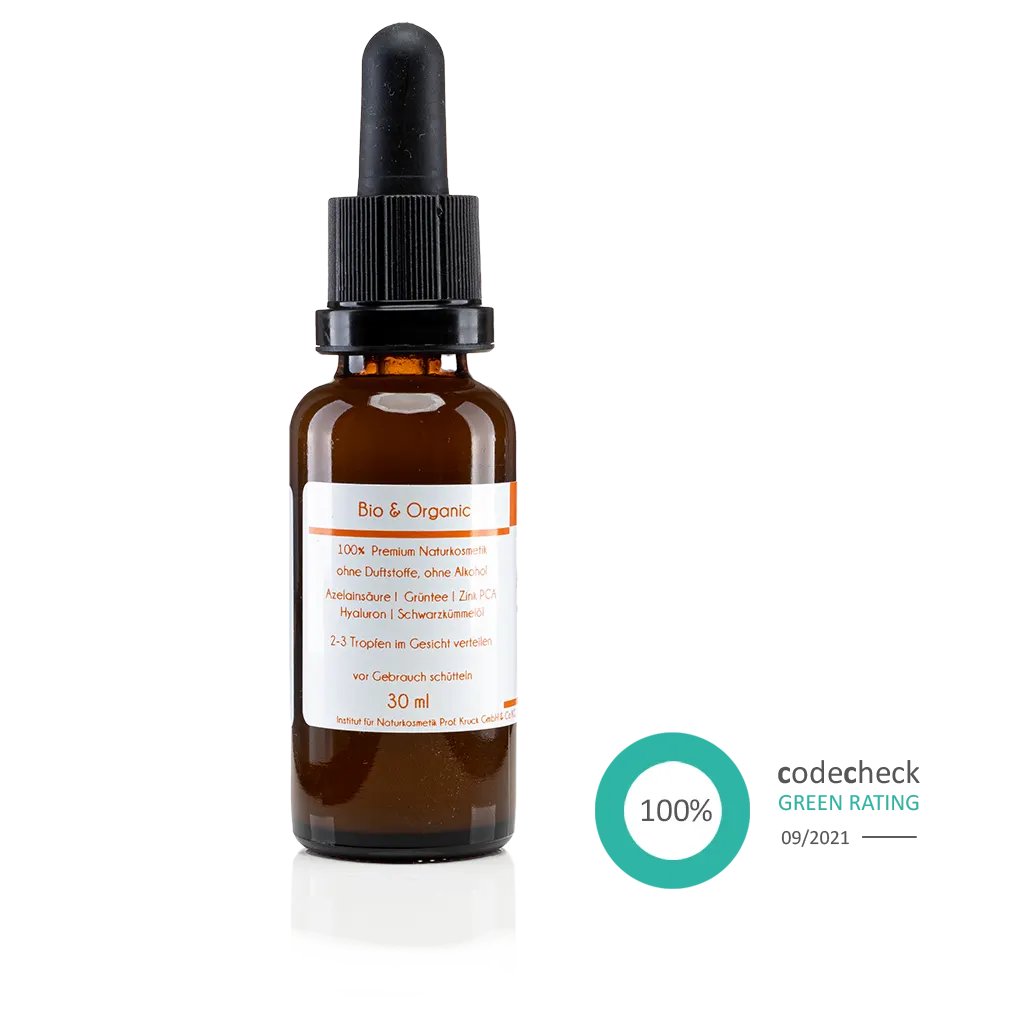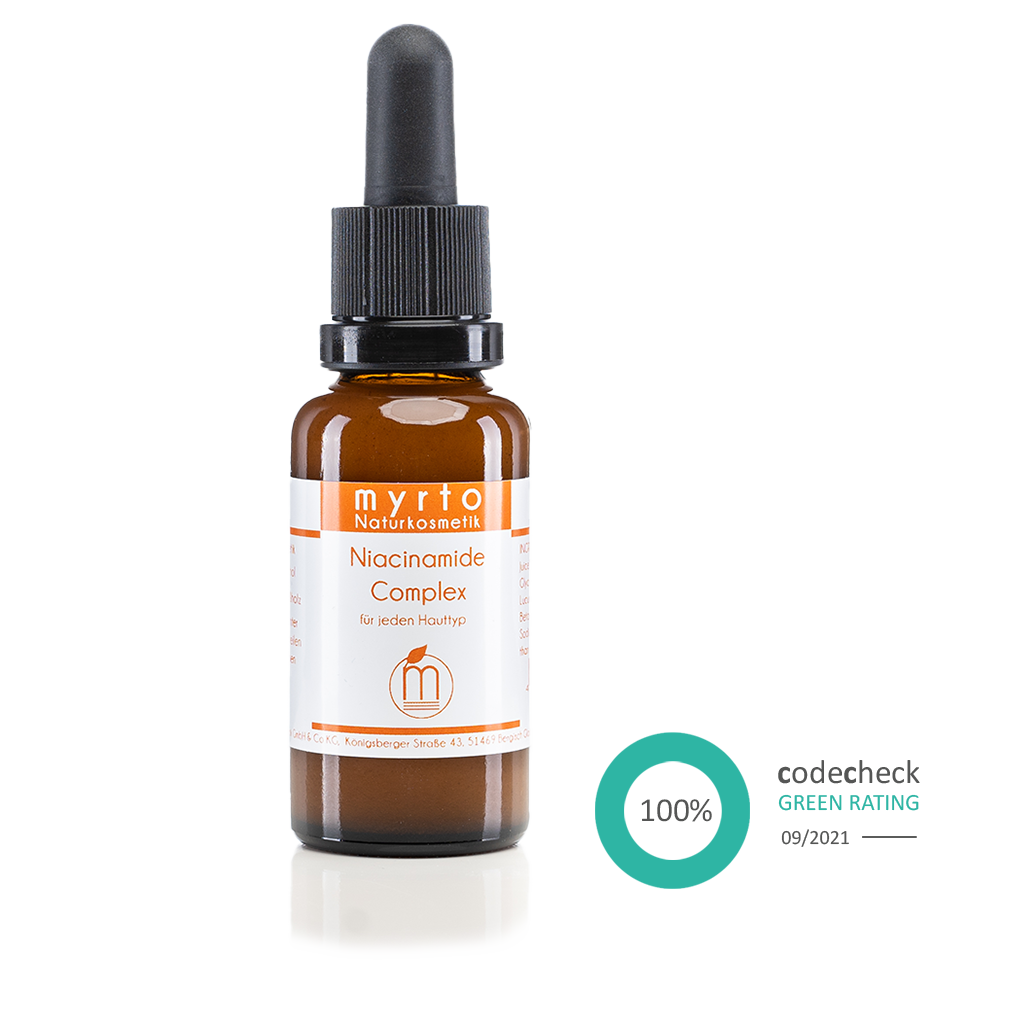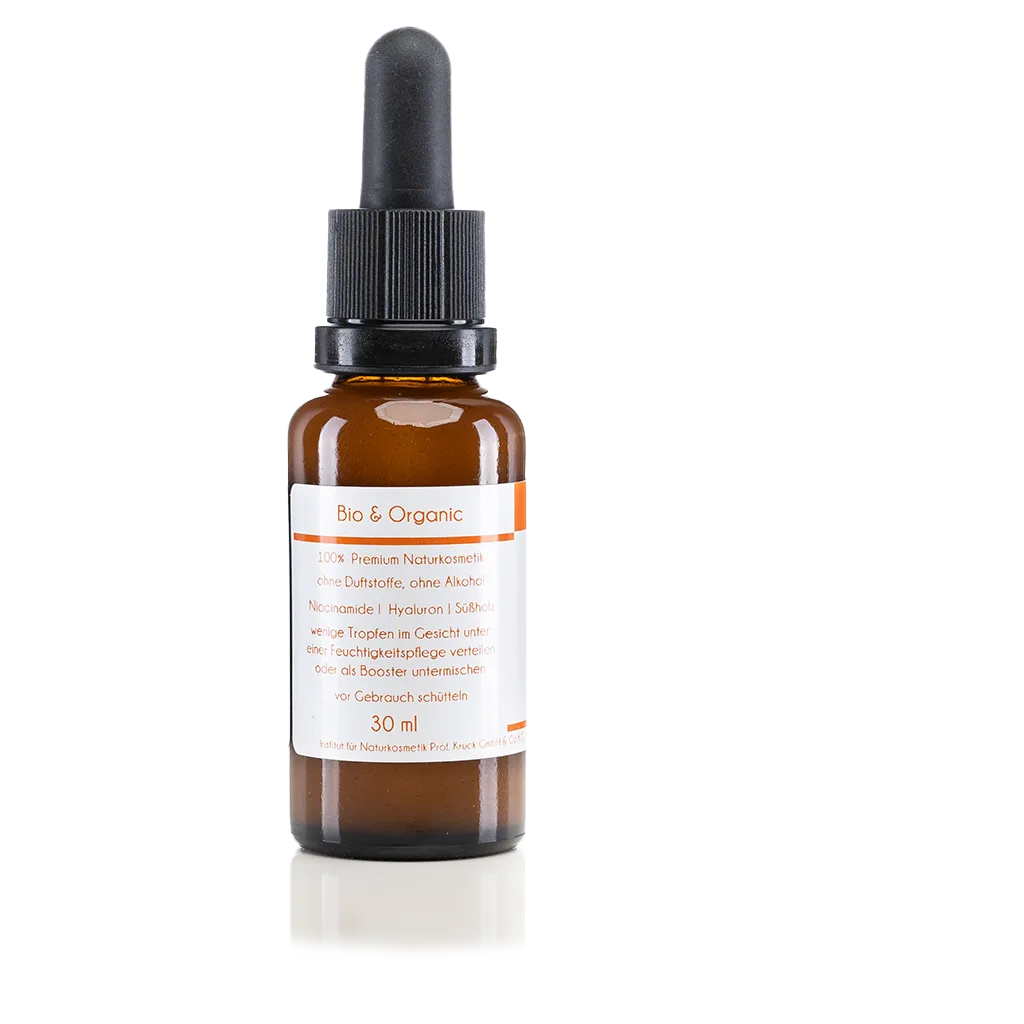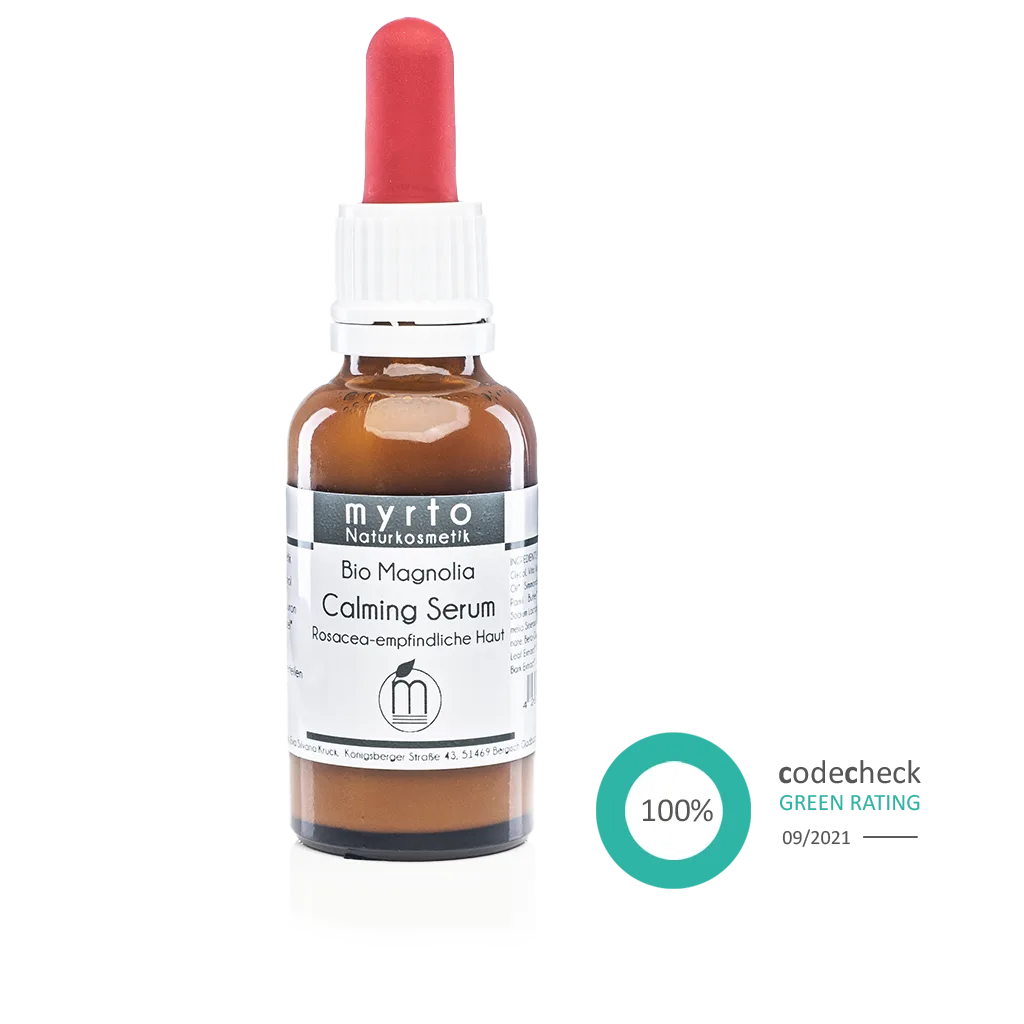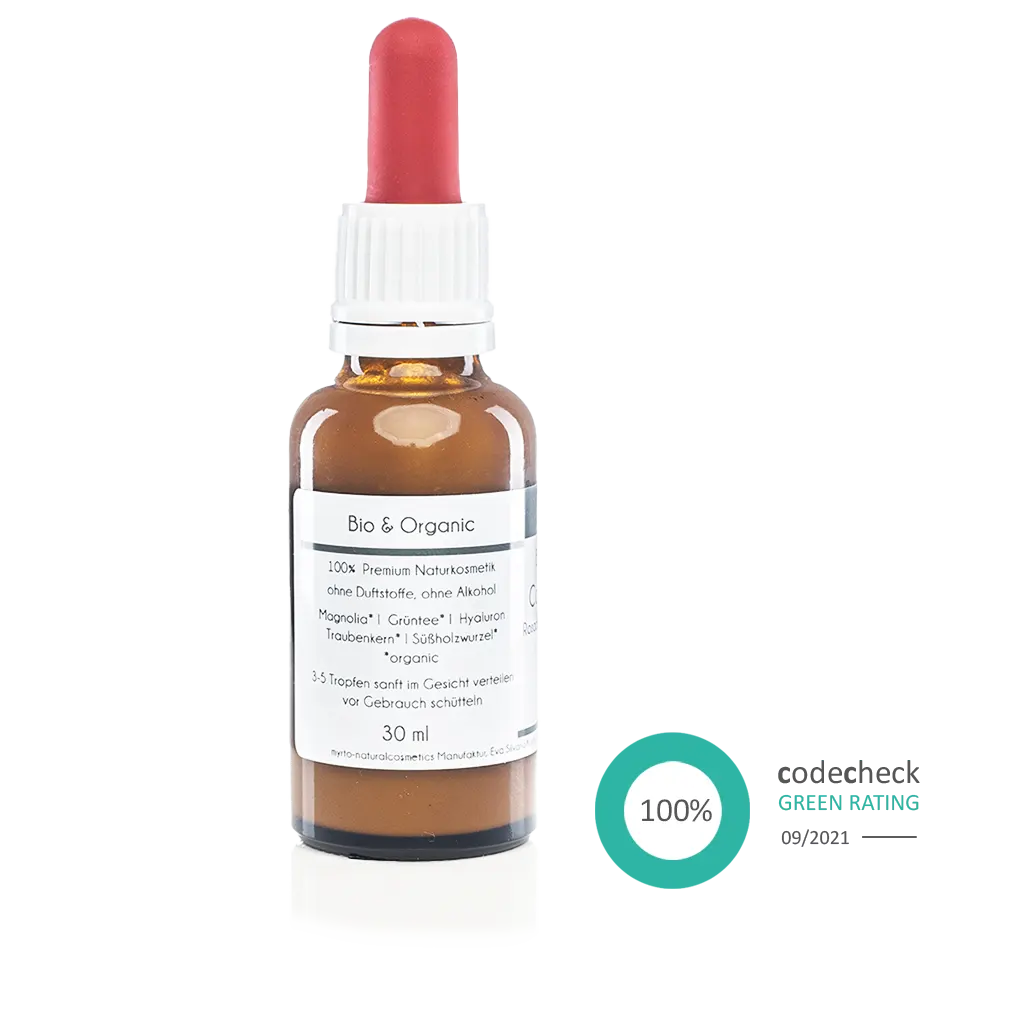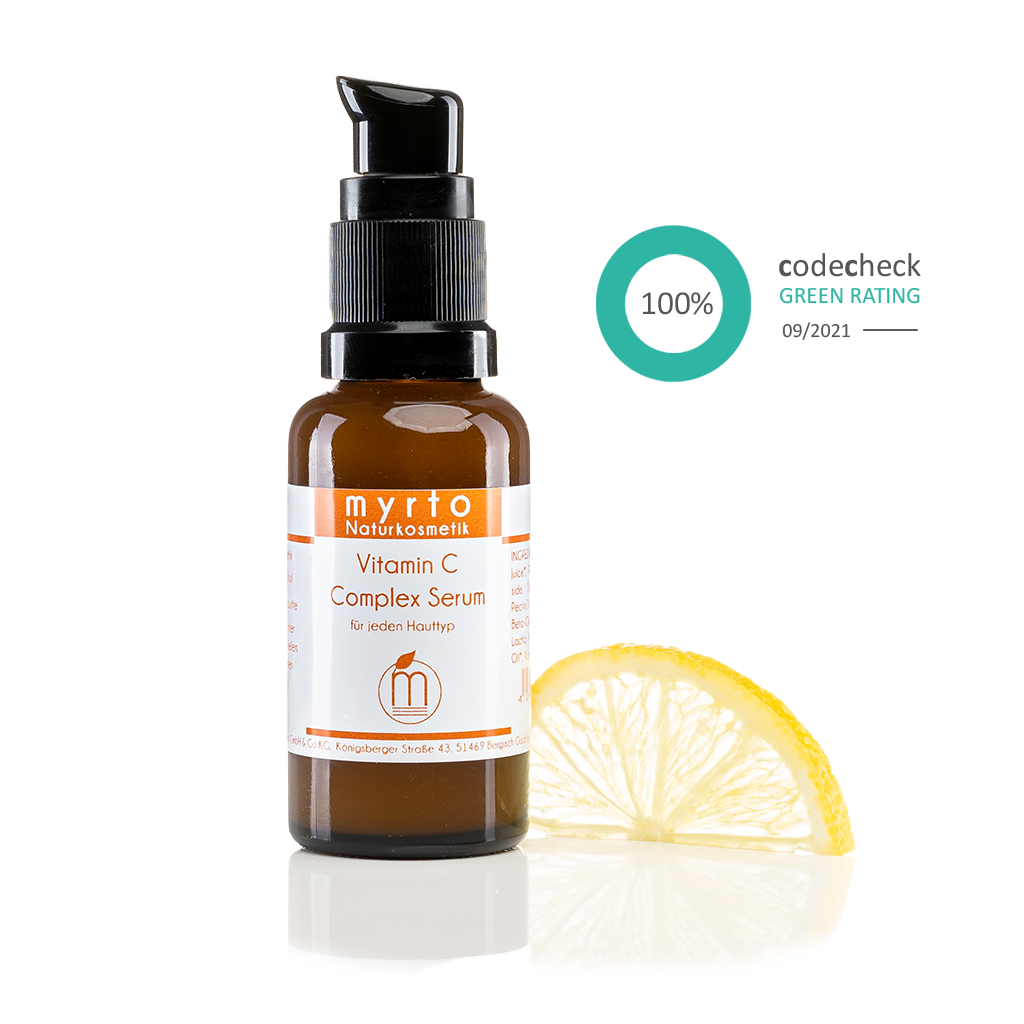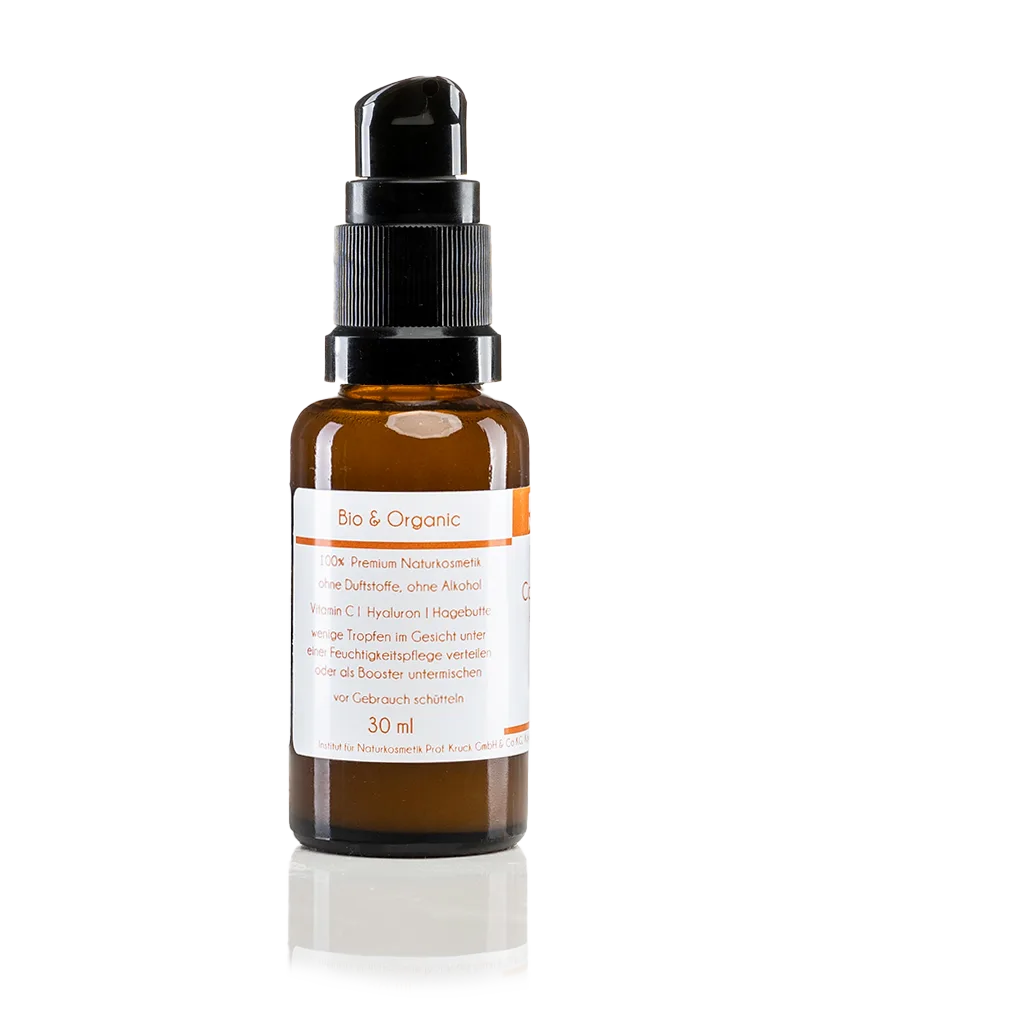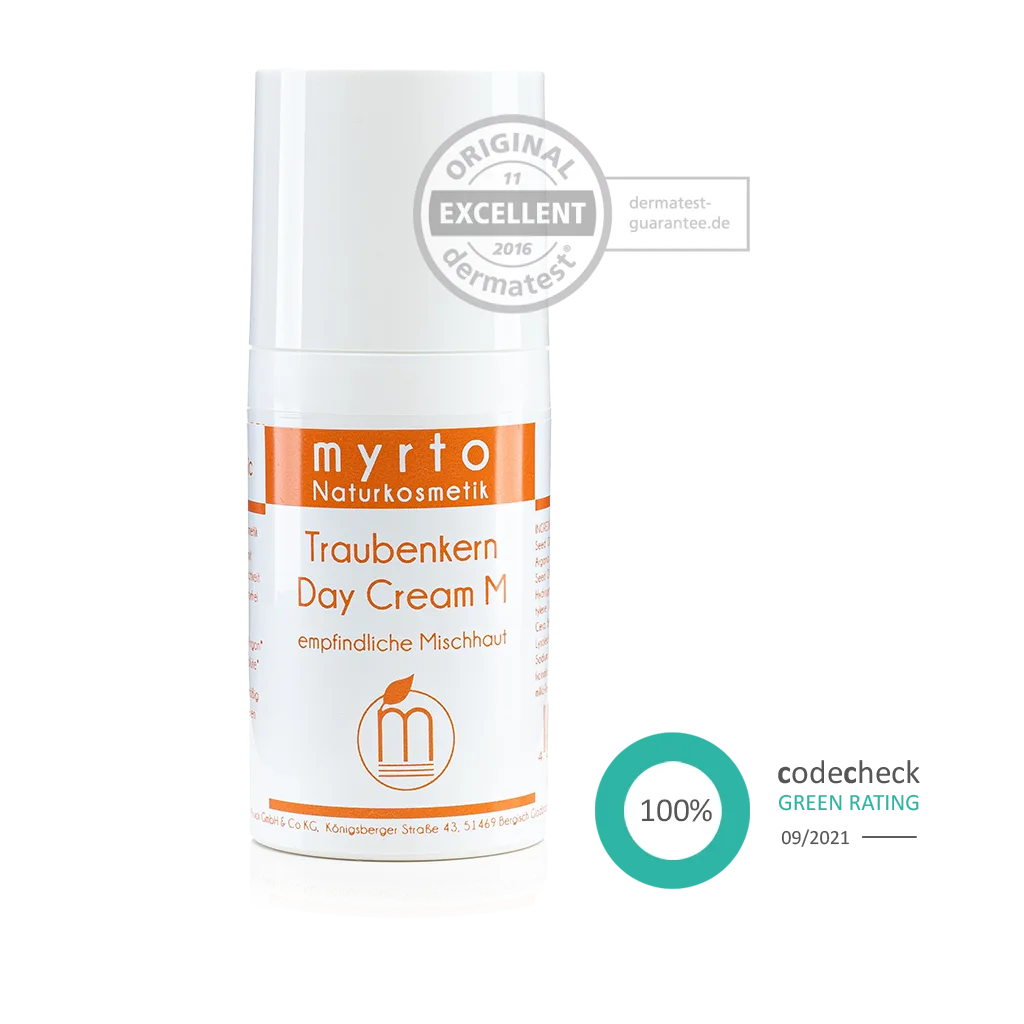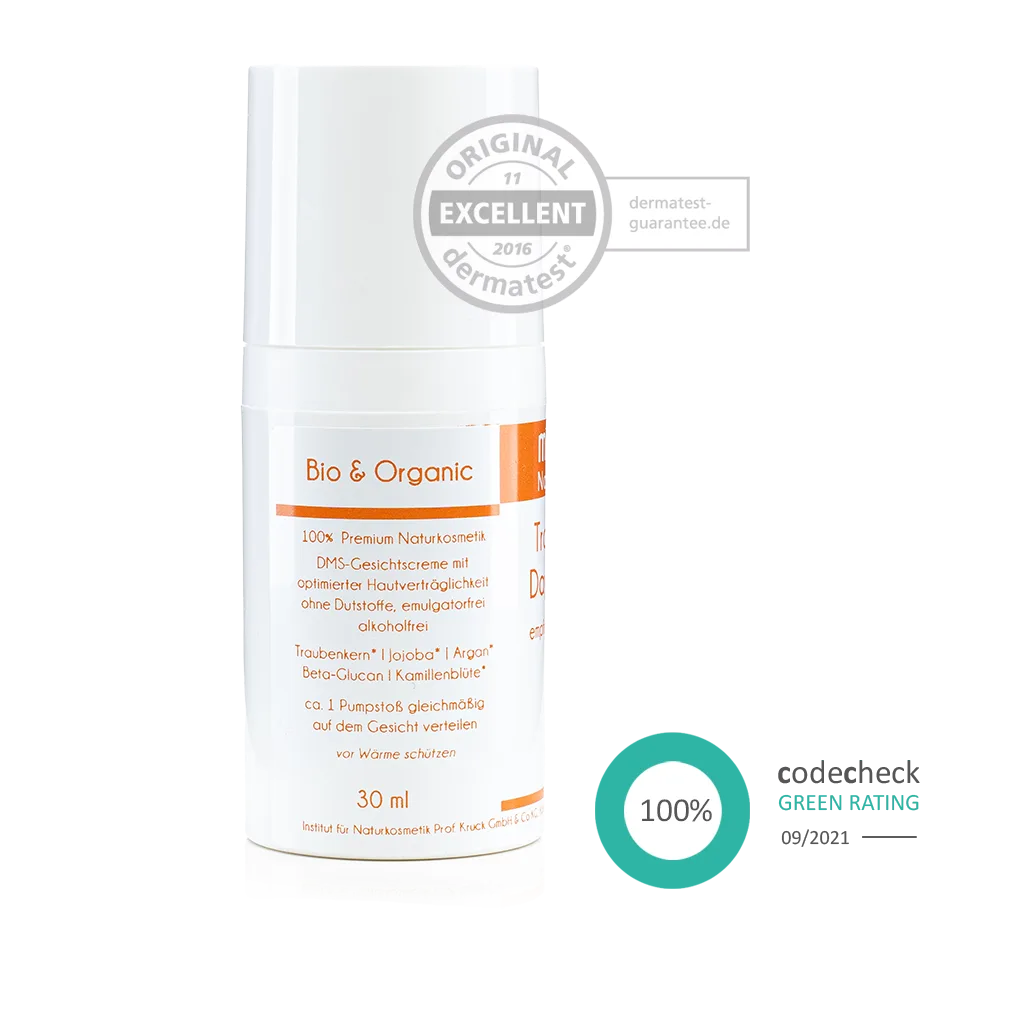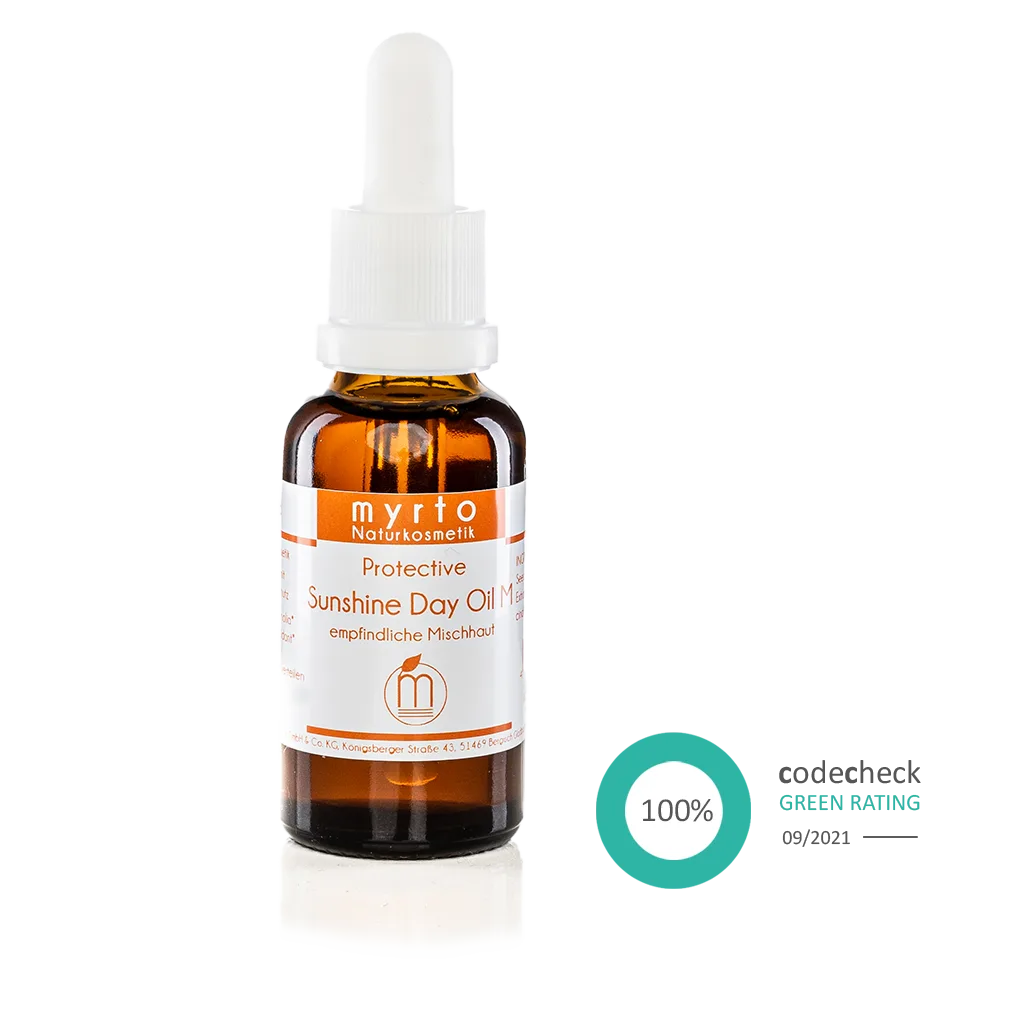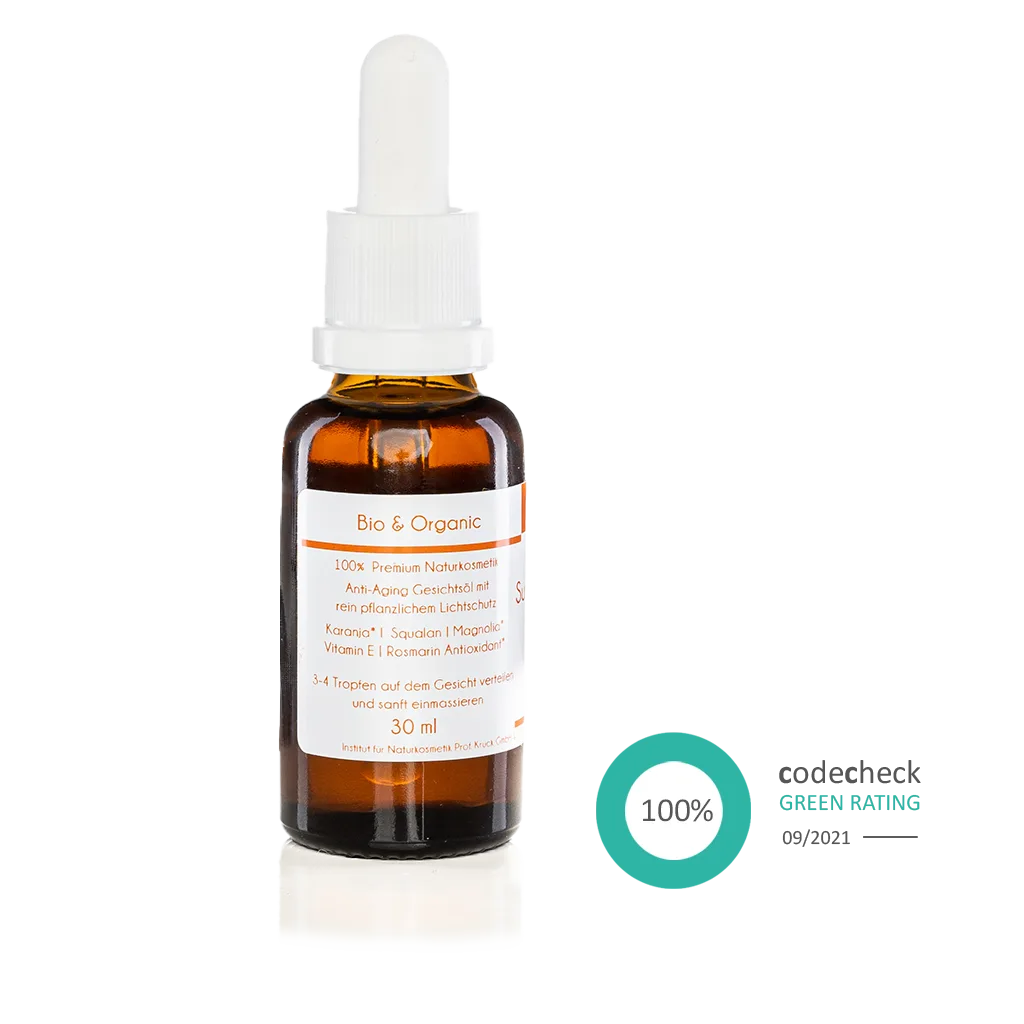Filters
100ml
Organic grape seed cleansing creamSurfactant-free facial cleansing cream for sensitive combination skin30ml
Organic Sunshine Day Oil MFacial oil with plant-based sun protection for sensitive combination skinRosacea: Causes, Triggers and Gentle Skin Care
Gentle facial care for rosacea and couperose: Our formulations soothe redness, strengthen the skin barrier, and consistently avoid alcohol, fragrances, emulsifiers, and preservatives. Ideal for sensitive skin types – for a balanced, healthy complexion.
The skin appearance of rosacea
Rosacea is a chronic skin inflammation that primarily manifests as persistent redness and visible blood vessels in the nose and cheek area. Initially, only temporary reddish patches, called "flushes," often appear. However, these can intensify over time and remain permanently visible. In advanced stages, papules (small red nodules), pustules (pus-filled blisters), or thickening of the skin may form, which can further impair the skin's appearance.
Difference between couperose and rosacea
Couperose and rosacea are similar in appearance, but there are differences. Couperose refers to temporary redness and dilated blood vessels, which often serve as the first sign of later rosacea. Rosacea, on the other hand, is a more serious, chronic form of skin inflammation. While couperose more commonly affects fair-skinned women over 30, more severe forms of rosacea occur almost exclusively in men. Unlike acne, rosacea's skin is not oily, and no blackheads or acne scars form.
Rosacea vs. Acne – Recognizing the Difference
Rosacea and acne both exhibit redness and inflammatory pustules, but have different causes. Rosacea is characterized by persistent redness, dilated blood vessels, and a burning sensation on the skin—especially in the central part of the face. Blackheads do not occur.
Acne, on the other hand, is hormonal and sebum-related, manifests as blackheads and pimples, and can also appear on the back, chest, or shoulders. For both skin types, a mild, non-irritating skincare product free of alcohol, fragrances, and harsh ingredients is crucial to strengthening the skin barrier and reducing inflammation.
Causes of rosacea
The exact causes of rosacea have not yet been fully researched, but certain factors are suspected to be triggers:
- Genetic predisposition: About 40% of people with rosacea have family members who are also affected, suggesting a genetic component.
- Immune disorders: Dysfunction of the innate immune system may play a role and promote inflammatory reactions.
- Temperature regulation: A disturbed heat balance in the body can lead to overreactions of the skin vessels.
- UV radiation and free radicals: UV radiation and free radicals can weaken the skin barrier and increase inflammation.
- Microorganisms: Infestation of the skin with Demodex mites is also discussed as a possible trigger.
Triggers of a rosacea flare-up
Rosacea-sensitive skin is particularly sensitive to various external and internal stimuli that can trigger flare-ups:
- Temperature fluctuations: Extreme cold or heat and rapid changes between them can intensify skin reactions.
- UV radiation: Intense sun exposure promotes inflammatory processes.
- Stress and emotional strain: Excitement and emotional stress often act as amplifiers for the symptoms.
- Food and drinks: Alcohol, hot coffee, hot spices, and spicy foods are common triggers.
- Inappropriate skin care: Products containing irritating ingredients such as alcohol, fragrances, or preservatives increase sensitivity and the appearance of the skin.
Skin care tips for rosacea
Proper skin care plays a key role in relieving rosacea symptoms. Rosacea skin requires particularly gentle and soothing products that strengthen the skin barrier and reduce redness. Consider the following:
- Avoid irritating ingredients: Avoid products containing alcohol, fragrances, emulsifiers, and preservatives, which can further irritate the skin.
- pH value of care products: Products should have a slightly acidic, skin-analogous pH value of 5.0 to 5.5 to strengthen the skin's protective barrier.
- No products containing mineral oil: Mineral oil can clog pores and impair skin respiration.
- Prefer light textures: Serums and fluids are generally better tolerated than rich, greasy creams or masks.
- No mechanical peeling: Peelings can increase redness and irritation and should be avoided if you have rosacea.
The myrto grape seed facial care range is specially developed for the needs of rosacea skin and contains no irritating additives that could put additional strain on the skin.
Experience report from Tina
"I apply the serum alone in the evening and under my grape seed cream in the morning. This serum helps me a lot with my sensitive combination skin, which has become drier and more sensitive. In the evening, it reduces redness, and I feel the calming effect on my skin. Especially for allergy sufferers like me, who react to many products, the myrto serum is a real discovery."
Conclusion
Rosacea requires gentle, targeted care and the conscious avoidance of triggers in everyday life. Long-term improvement in the skin's appearance can be achieved through a personalized skincare routine and a healthy lifestyle.
❓ Frequently asked questions about rosacea
What is the difference between couperose and rosacea?
What triggers can promote rosacea flare-ups?
Which care products are suitable for rosacea?
Is rosacea curable?
What helps with acute redness?
Want to learn more? In our blog post on rosacea and couperose , as well as rosacea vs. acne, you'll learn how the two skin types differ, which triggers you should avoid, and which skincare options are best.



